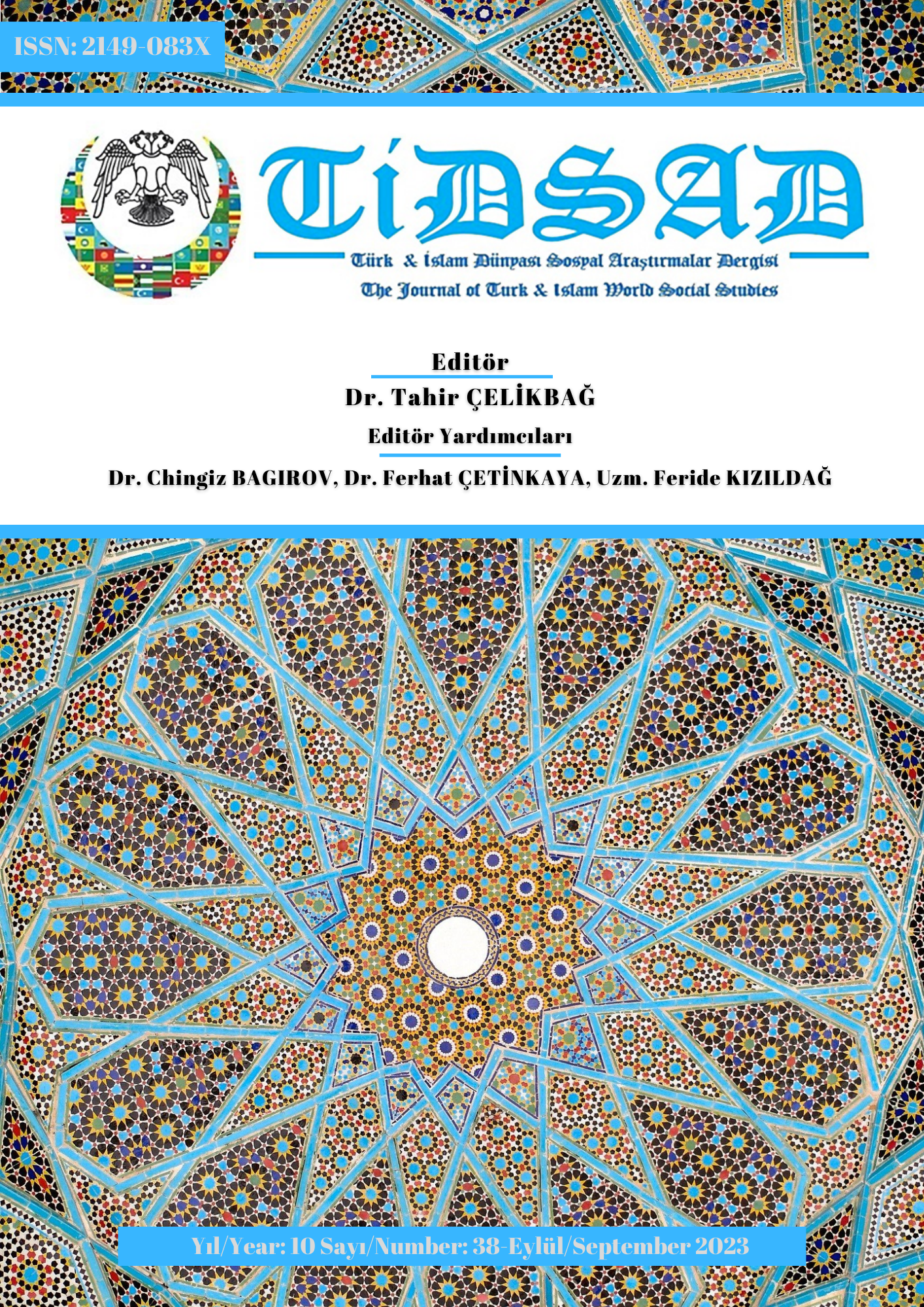Author :
Abstract
Rüşvet, tarihsel süreç boyunca farklı toplumsal, siyasi ve ekonomik yapılarına rağmen varlığını sürdüren önemli bir suç kategorisidir. İnsanın bireysel psikolojik yapıları ve toplumun dönemsel sosyolojik dinamikleri temelinde şekillenen rüşvet, sosyoekonomik ve politik yapılarla da sürekli etkileşim halindedir. Osmanlı Devleti, bu dinamiklerin derinlemesine incelenmesi için önemli bir örnek teşkil etmektedir. Bu çalışma, "Türkiye Diyanet Vakfı İslam Araştırma Merkezi (İSAM)" tarafından yayımlanan "İstanbul Kadı Sicilleri" veri tabanından elde edilen bilgilerle, 16. ve 19. yüzyıllar arasındaki rüşvet olgusunu detaylıca analiz etmeyi hedeflemiştir. Bahsi geçen dönemde, toplam 65 rüşvet kaydına ulaşılmıştır. Kayıtların yirmi altısı (%39) kişisel borçla, yirmi beşi (%40) iş görme ve gördürme ile, dört tanesi (%6) mukataa veya iltizamla, yine dört tanesi (%6) askeri faaliyetler ile ve altısı (%9) çeşitli muhtelif olaylarla ilişkilidir. Bu bulgular, rüşvetin Osmanlı Devleti'nde ne denli geniş bir yelpazede etkin olduğunu ve farklı toplumsal, ekonomik ve siyasi alanlarda nasıl bir rol oynadığını göstermektedir. Özellikle rüşvetin toplumsal yapıyı etkileme gücü ve devletin yapısal dinamiklerine olan etkisi, çalışmanın sonucunda kamusal ve sosyo-ekonomik yapıları nasıl olumsuz etkilediği ile net bir şekilde ortaya konulmuştur.
Keywords
Abstract
Bribery has persistently been a prominent category of crime throughout history, irrespective of diverse societal, political, and economic structures. It finds its origins in individual psychological inclinations and the evolving sociological dynamics of communities, maintaining a consistent interaction with both socioeconomic and political systems. The Ottoman Empire stands as a salient case for a comprehensive examination of these intricacies. This research, drawing upon the "Istanbul Kadi Registers" published by the "Türkiye Diyanet Foundation Centre for Islamic Studies (ISAM)", seeks to meticulously dissect the instances of bribery between the 16th and 19th centuries. In the specified timeframe, a total of 65 bribery records were unearthed. Of these, twenty-six records (39%) pertain to personal debts, twenty-five (40%) to job assignments and delegation, four (6%) to tax farming or leaseholds, another four (6%) to military endeavors, and six (9%) to a range of miscellaneous incidents. Such findings illuminate the expansive scope of bribery's foothold within the Ottoman Empire, highlighting its multifaceted roles across various societal, economic, and political domains. The profound ability of bribery to reshape societal constructs, juxtaposed with its sway over the empire's core dynamics, underscore its deleterious impacts on the public and socio-economic structures.
